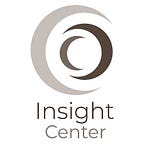The New Deal
By Anne Price, President
We are in a defining moment. As we weigh the future of our democracy, there are amplified calls to move beyond defensive strategies and incremental steps to push for bigger, bolder actions.
We are seeing a roll out of economic proposals that move far beyond the status quo and could have a profound effect on working and middle-class Americans.
One proposal increases the supply of affordable housing and tackles the vestiges of housing segregation by providing capital for down payments to those who have been historically excluded from homeownership.
Another ambitious plan serves as a trust for young adults, providing them with seed capital that could be used for wealth-building purchases like a down payment on a house, college tuition, or starting a business.
And another plan to bolster the middle class would give American single adults $250 per month or $3,000 a year, and married couples $500 per month or $6,000 a year, with means-tested eligibility based on household structure and income.
Among the most consequential ideas is a proposal to curb corporate power and put workers on the corporate boards. This plan calls for restructuring large companies so that their business decisions favor a whole range of stakeholders, not just executives and shareholders.
Taken in some combination, these proposals present important levers for tackling economic and racial inequality and the power that comes with concentrated wealth. Equally important, they offer a foundation for a reimagined role for government.
Despite politically charged references to today’s “economic boom,” we know that wages still aren’t picking up and nearly half of Americans are struggling to get by, living paycheck to paycheck in the absence of accessible opportunities for asset building.
Our national prosperity didn’t disappear in some tornado or earthquake — quite the contrary. Politicians once provided fairer rules of the road, including stronger corporate governance measures and more progressive taxation, to ensure that the unrepentant greed of the few did not go unchecked. But government policies and practices in these and many areas have become much less egalitarian and increasingly punitive, often recreating oppression, subjugation, and discrimination.
We should look to new bold economic policies as an opportunity to provide a vision for government to promote social freedoms and to provide a basic level of economic security and a suite of universal public goods.
We also know that it will take much more than these policies alone. We need to build broad collective action and greater institutional support to address the underlying narratives and foundational cultural beliefs that have prevented us from making progress.
Our physical and emotional safety, dignity, and peace of mind are interconnected with true economic security and liberation. And that liberation is not possible without a strong democracy — one characterized by a truly inclusive and engaged electorate.
Our nation is at a crucial juncture to create, maintain, and preserve democratic processes that give voice to all — not just in the “laboratories of democracy” of particular states, but at the national level.
As described by Carol Anderson, author of One Person, No Vote, deep disparities in our democracy are threatening the sustainability of our union: “When thirty-one states are vying to develop new and more ruthless ways to disenfranchise their population, and when the others are searching desperately for ways to bring millions of citizens into the electorate, we have created a nation where democracy is simultaneously atrophying and growing — depending solely on where one lives.”
Inequities in our democratic processes give root and branch to inequities in our economy. The varied egregious efforts to suppress votes in this latest election season showcase yet again how voter disenfranchisement is a recurring step in the cycle of economic exclusion.
Yet this election also shows us that voters need not only strong protections, but bold new visions they can aspire to and share in. And the innovative economic ideas we are seeing — in many cases carried forth by leaders of color — offer more people and more communities the opportunity to be stakeholders in our economy and society.
Part of voter disenfranchisement is the false narrative that your vote doesn’t matter and that the system can’t be changed. But as more inclusive socioeconomic policies are pushed to the forefront by a more inclusive set of voices, we may finally be able to see what an engaged democracy looks like.
The current election is always the most important one. Vote on November 6th.
